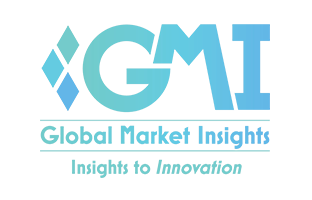Merchant Hydrogen Revolutionizing Petroleum Refinery Operations
Key Ideas
- Merchant hydrogen generation market valued at USD 10.3 billion in 2023, expected CAGR of 7.6% till 2032, driven by environmental regulations and technological advancements.
- Growing demand for cleaner fuels leads to increased investment in hydrogen production technologies like SMR, ATR, and electrolysis.
- Asia Pacific market set to exceed USD 5.5 billion by 2032 due to rapid industrialization, urbanization, and environmental regulations for reducing emissions.
- U.S. refineries turning to merchant hydrogen for operational optimization, cost reduction, and enhanced economic efficiency through outsourcing.
The Petroleum Refinery Merchant Hydrogen Generation Market is experiencing significant growth, with a value of USD 10.3 billion in 2023 and a projected CAGR of 7.6% between 2024 and 2032. This growth is fueled by the increasing pressure on petroleum refineries to adhere to strict environmental regulations aimed at reducing emissions and enhancing air quality. Advancements in hydrogen production technologies such as steam methane reforming (SMR) and electrolysis are making hydrogen generation more cost-effective and efficient, further driving market expansion.
The market is witnessing a shift towards cleaner fuels, prompting refineries to invest in technologies that produce low-sulfur and low-emission products. This demand for cleaner fuels is boosting the adoption of merchant hydrogen, as it supports processes aligned with market demands and environmental standards. Additionally, the market is seeing a trend towards establishing reliable and consistent hydrogen supply chains to minimize operational disruptions.
In the analysis, the steam reformer segment is highlighted for its projected growth, surpassing USD 17 billion by 2032, driven by the need for clean fuel and decarbonization efforts. The Asia Pacific market is expected to exceed USD 5.5 billion by 2032 due to rapid industrialization, urbanization, and stringent environmental regulations. The U.S. is increasingly embracing merchant hydrogen to optimize operations, reduce costs, and benefit from specialized hydrogen producers' economies of scale.
Key players in the industry are expanding geographically to tap into emerging markets with rising hydrogen demand. They are investing in production facilities, storage, and distribution networks to meet the growing demand for high-purity hydrogen efficiently. The recent partnership between ITM Power and Shell in Germany signifies the industry's momentum towards sustainable hydrogen solutions. Overall, the petroleum refinery merchant hydrogen generation market is positively evolving, driven by a collective effort to achieve cleaner and more efficient energy solutions.
Topics
Investing
Investment
Technology Advancements
Key Players
Industry Trends
Market Growth
Environmental Regulations
Cleaner Fuels
Geographic Expansion
Latest News
